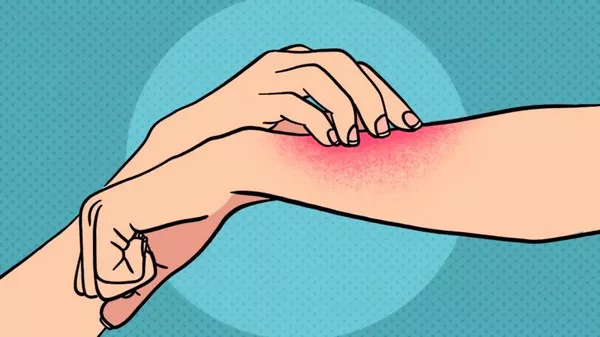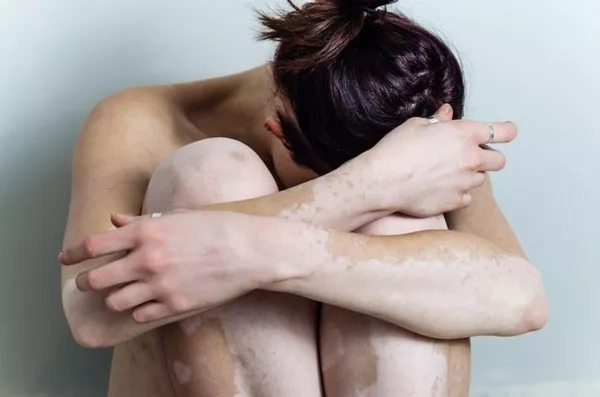Eczema, a chronic skin condition characterized by inflammation, itching, and redness, affects millions of people worldwide. While swelling isn’t always a primary symptom of eczema, it can occur as a secondary reaction to the inflammation and irritation associated with the condition. Understanding the relationship between eczema and swelling is crucial for effective management and treatment. In this article, we’ll delve into the different types of eczema that can cause swelling, explore the link between inflammation and swelling, discuss treatment options, offer home remedies and self-care tips, and emphasize the importance of consulting a dermatologist for personalized care.
Types of Eczema That Cause Swelling
Eczema encompasses several types, each with its unique characteristics and triggers. While swelling may not be a defining feature of all eczema types, certain variants are more likely to result in swelling as a symptom.
1. Atopic Dermatitis: This is the most common form of eczema and often manifests in childhood. Atopic dermatitis can cause swelling due to the body’s immune system reacting to triggers such as allergens or irritants. The skin becomes inflamed, leading to redness, itching, and in some cases, swelling.
2. Contact Dermatitis: Contact dermatitis occurs when the skin comes into contact with an irritant or allergen, triggering an inflammatory response. Swelling can occur at the site of contact, along with itching, redness, and blistering. Swelling is a common symptom, especially in cases of allergic contact dermatitis.
3. Nummular Eczema: This type of eczema is characterized by coin-shaped patches of irritated skin. While swelling may not be as prominent as in other types, severe inflammation can lead to localized swelling within the affected areas.
4. Dyshidrotic Eczema: Dyshidrotic eczema primarily affects the hands and feet, causing tiny blisters to form on the skin. Inflammation and irritation from these blisters can result in swelling of the affected areas.
5. Seborrheic Dermatitis: While swelling is not a prominent feature of seborrheic dermatitis, severe inflammation in areas rich in oil glands, such as the scalp, face, and chest, can lead to some degree of swelling.
The Link Between Inflammation and Swelling
Inflammation is a key driver of swelling in eczema. When the skin becomes inflamed in response to triggers such as allergens, irritants, or stress, the body’s immune system releases inflammatory chemicals. These chemicals cause blood vessels in the affected area to dilate, leading to increased blood flow and fluid leakage into the surrounding tissues. This fluid accumulation results in swelling, which is often accompanied by redness, warmth, and discomfort.
In eczema, the inflammatory response is dysregulated, leading to chronic inflammation and recurrent flare-ups. This chronic inflammation not only exacerbates existing symptoms but can also contribute to long-term damage to the skin barrier, making it more susceptible to further irritation and swelling.
Treatment Options for Eczema and Swelling
Managing eczema-related swelling involves addressing the underlying inflammation and restoring the skin barrier function. Treatment options may include:
1. Topical Steroids: Topical corticosteroids are commonly prescribed to reduce inflammation and swelling in eczema. These medications help alleviate symptoms and promote healing when applied to the affected areas as directed by a healthcare professional.
2. Topical Calcineurin Inhibitors: Calcineurin inhibitors are another class of topical medications that can help reduce inflammation and swelling in eczema. These medications are particularly useful for sensitive areas of the skin, such as the face and genitals.
3. Moisturizers: Keeping the skin well-hydrated with emollients and moisturizers can help soothe irritation and reduce swelling associated with eczema. Look for products that are fragrance-free and suitable for sensitive skin.
4. Antihistamines: Oral antihistamines may be prescribed to help relieve itching and reduce swelling in cases where allergic reactions contribute to eczema flare-ups.
5. Phototherapy: Phototherapy, or light therapy, involves exposing the skin to ultraviolet (UV) light under medical supervision. This treatment can help reduce inflammation and improve symptoms in some individuals with eczema.
Home Remedies and Self-Care Tips
In addition to medical treatment, incorporating home remedies and self-care strategies can help manage swelling and other symptoms of eczema. Consider the following tips:
1. Avoid Triggers: Identify and avoid triggers that exacerbate eczema symptoms, such as certain fabrics, harsh soaps, and environmental allergens.
2. Keep Skin Cool and Moisturized: Use cool compresses and moisturizers to soothe irritated skin and reduce swelling. Avoid hot water, which can further dry out the skin and worsen inflammation.
3. Practice Good Skin Care: Gently cleanse the skin with mild, fragrance-free cleansers, and pat dry with a soft towel. Avoid scrubbing or rubbing the skin, as this can exacerbate irritation.
4. Wear Loose, Breathable Clothing: Opt for loose-fitting, breathable clothing made from soft fabrics like cotton to minimize irritation and promote airflow to the skin.
5. Manage Stress: Stress can trigger eczema flare-ups, so practice stress-reduction techniques such as meditation, deep breathing exercises, or yoga to help manage symptoms.
Importance of Consulting a Dermatologist
While home remedies and over-the-counter treatments can provide relief for mild eczema symptoms, it’s essential to consult a dermatologist for proper diagnosis and management, especially if swelling is persistent or severe. A dermatologist can:
1. Provide Personalized Treatment: A dermatologist can tailor treatment plans to address individual needs, taking into account the type and severity of eczema, as well as any underlying factors contributing to swelling.
2. Monitor Skin Health: Regular follow-up appointments with a dermatologist allow for ongoing assessment of skin health and adjustment of treatment as needed to ensure optimal management of eczema symptoms.
3. Prevent Complications: By closely monitoring eczema and addressing inflammation and swelling promptly, a dermatologist can help prevent potential complications such as skin infections or long-term damage to the skin barrier.
Conclusion
In conclusion, while eczema may not always directly cause swelling, inflammation plays a significant role in the development of swelling as a secondary symptom. Understanding the link between eczema and swelling is essential for effective management and treatment. By addressing inflammation, practicing good skin care, and consulting a dermatologist for personalized care, individuals with eczema can better manage symptoms and improve their quality of life.
Related Topics:

























